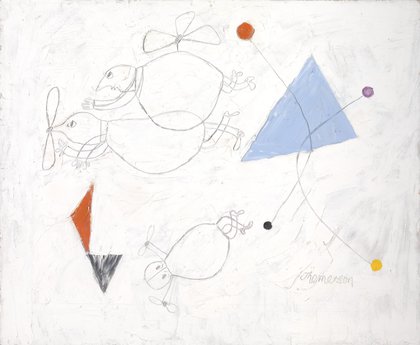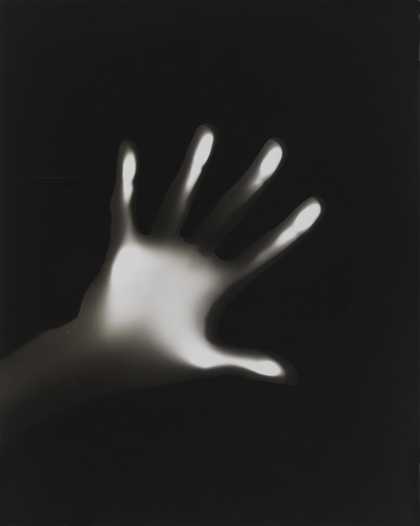Explore the lifelong artistic collaboration of Franciszka and Stefan Themerson
This display introduces the lifelong collaboration of Franciszka and Stefan Themerson. It features his photograms and their films, as well as Franciszka’s drawings and paintings.
Both were born in Poland, where they met and married. They moved to Paris in 1938, and then found their way to the UK, Franciszka in 1940, Stefan in 1942. Franciszka was principally a painter and Stefan was a writer, but in his twenties, he also began to experiment with photography. The period between the First and Second World Wars was a time of great innovation in photography and film. Photographers began to make abstract images experimenting with darkroom techniques. It was at this time Stefan Themerson started making photograms, which involved laying objects directly on light-sensitive paper.
During the 1930s, Franciszka joined Stefan in making short experimental films. They made use of camera-less photography using a construction which Stefan described as the ‘trick table’. This construction had a flat horizontal area that consisted of a sheet of glass covered with tracing paper. Stefan would be lying underneath with his camera pointing upwards, while Franciszka moved the objects and lights above. Stefan called their films ‘photograms in motion’.
The Themersons made five films in Poland during the 1930s, and two films in England during 1943–5. In 1948 they started a publishing company in London, the Gaberbocchus Press. During 1957–9 they organised the Gaberbocchus Common Room, the first club in London with the aim of bringing artists and scientists together. The programme included discussions, film shows, play and poetry readings. Meanwhile Franciszka worked as a painter, graphic designer, stage designer and illustrator. Stefan continued to write novels, poems, an opera and a play. Through the work they created, the Themersons made considerable steps in expanding and diversifying the borderlines of art.
The International Council Gallery Consortium
Tate Modern


